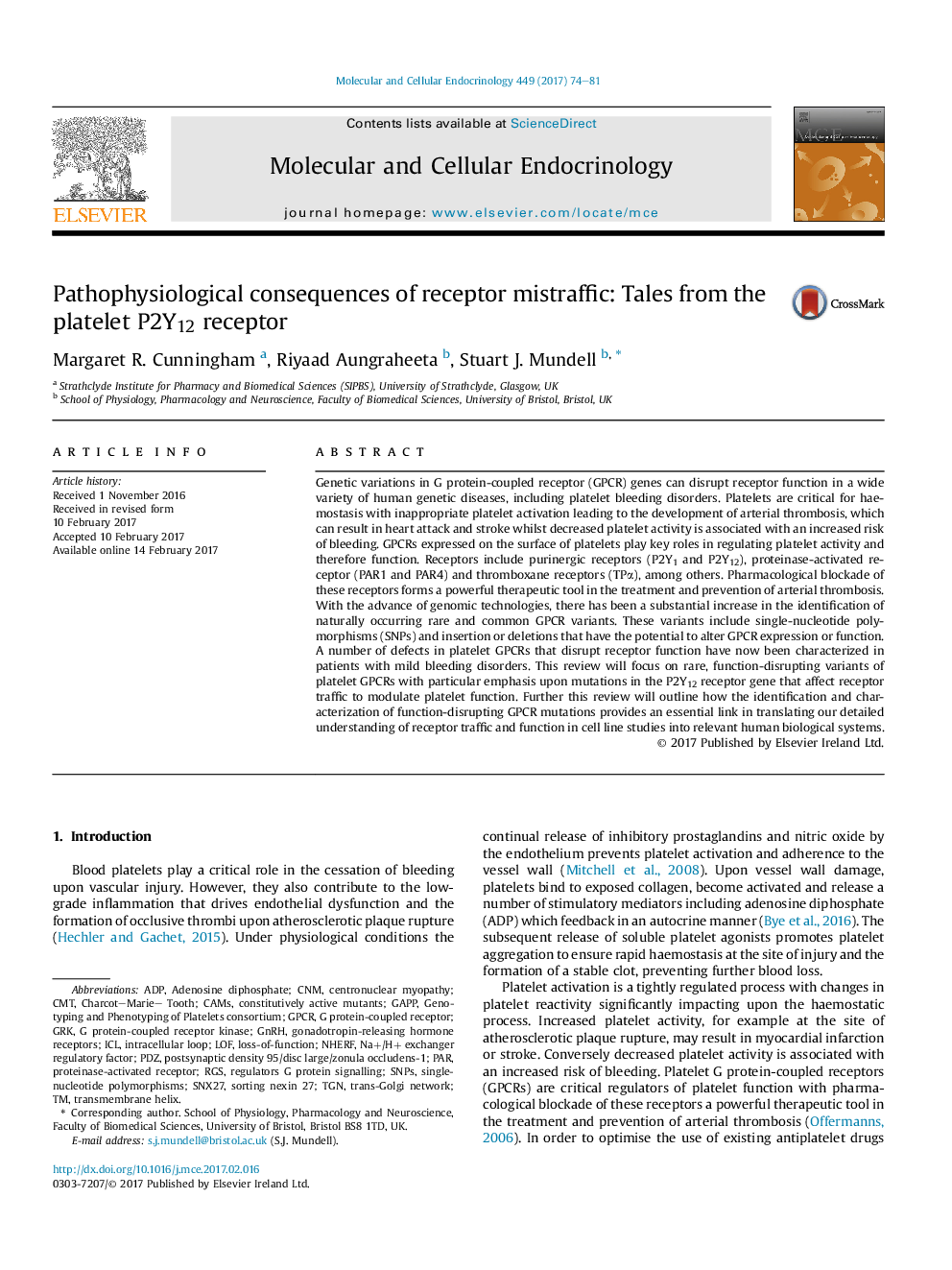| Article ID | Journal | Published Year | Pages | File Type |
|---|---|---|---|---|
| 5534070 | Molecular and Cellular Endocrinology | 2017 | 8 Pages |
â¢Review focussing on rare, function-disrupting variants of G protein-coupled receptors (GPCRs).â¢Specific emphasis on insights provided by single-nucleotide polymorphisms of platelet GPCRs including the P2Y12 receptor.â¢Discussion on the link such mutations provide in translating our understanding of receptor function into relevant human biological systems.
Genetic variations in G protein-coupled receptor (GPCR) genes can disrupt receptor function in a wide variety of human genetic diseases, including platelet bleeding disorders. Platelets are critical for haemostasis with inappropriate platelet activation leading to the development of arterial thrombosis, which can result in heart attack and stroke whilst decreased platelet activity is associated with an increased risk of bleeding. GPCRs expressed on the surface of platelets play key roles in regulating platelet activity and therefore function. Receptors include purinergic receptors (P2Y1 and P2Y12), proteinase-activated receptor (PAR1 and PAR4) and thromboxane receptors (TPα), among others. Pharmacological blockade of these receptors forms a powerful therapeutic tool in the treatment and prevention of arterial thrombosis. With the advance of genomic technologies, there has been a substantial increase in the identification of naturally occurring rare and common GPCR variants. These variants include single-nucleotide polymorphisms (SNPs) and insertion or deletions that have the potential to alter GPCR expression or function. A number of defects in platelet GPCRs that disrupt receptor function have now been characterized in patients with mild bleeding disorders. This review will focus on rare, function-disrupting variants of platelet GPCRs with particular emphasis upon mutations in the P2Y12 receptor gene that affect receptor traffic to modulate platelet function. Further this review will outline how the identification and characterization of function-disrupting GPCR mutations provides an essential link in translating our detailed understanding of receptor traffic and function in cell line studies into relevant human biological systems.
